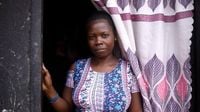For decades, malaria has been the deadliest disease across Africa, claiming hundreds of thousands of young lives each year, with newborns and infants among the most vulnerable. Now, a breakthrough in treatment offers new hope: a malaria drug specifically formulated for newborns and infants weighing less than five kilograms is set to be introduced in eight African countries, including Nigeria and Uganda, after gaining approval from Swiss medical regulators.
The medicine, known as artemether-lumefantrine and marketed as Coartem Baby (or Riamet Baby in some countries), was developed by Novartis in partnership with the Medicines for Malaria Venture (MMV). According to AP News, Swissmedic, the Swiss agency for therapeutic products, granted approval in July 2025, working in coordination with the World Health Organization under a fast-track authorization process designed to speed access for developing countries. The approval follows clinical trials conducted in Nigeria, Burkina Faso, Côte d’Ivoire, Kenya, Malawi, Mozambique, Tanzania, and Uganda, with Ghana already having approved the treatment prior to this announcement.
The clinical trial was closed early—a rare move in the world of drug development—due to strong evidence of safety and efficacy. This marks the first time a malaria therapy has been specifically designed for infants under 5kg. Previously, clinicians were forced to break down tablets intended for older children to approximate doses for newborns, a risky practice that could easily result in overdose or inadequate treatment. Now, with a sweet-tasting tablet that disperses into syrup when dropped in water and flavors like orange or mango to make it more palatable for infants, Coartem Baby is poised to fill a critical gap in malaria care.
“Even the smallest and most vulnerable infants now have access to safe and effective treatment,” said Dr. Jean Kaseya, Director General of the Africa Centres for Disease Control and Prevention (Africa CDC), as reported by The Guardian Nigeria. He hailed the approval as a “major advance” in closing a treatment gap for Africa’s youngest citizens, commending the eight trial countries for their leadership and underlining Africa’s growing role in health innovation. Dr. Kaseya added that Africa CDC is committed to supporting countries in scaling up access through targeted policies, investments, and collaboration, with the ambitious aim of eliminating malaria within a generation.
The impact of malaria on African families is deeply personal. Alice Nekesa, a 28-year-old Ugandan mother, suffered a miscarriage last year due to untreated malaria during pregnancy. “I didn’t discover malaria and treat it early,” she told AP News, expressing regret for the loss of what would have been her second child. Such stories are all too common across Uganda and other high-burden countries, where health workers frequently witness stillbirths and the deaths of feverish newborns from undiagnosed malaria.
The statistics are staggering. According to the World Health Organization, Africa’s 1.5 billion people accounted for 95% of an estimated 597,000 malaria deaths worldwide in 2023, with more than three-quarters of those deaths among children. In Uganda alone, there were 12.6 million malaria cases and nearly 16,000 deaths last year, many among children under five and pregnant women. Nigeria, Congo, and Uganda are the African countries most burdened by malaria, a parasitic disease transmitted by mosquitoes that thrive in stagnant water.
Until now, a major gap in malaria treatment was how to care for newborns and infants who weren’t strong enough to receive regular medication. Health workers, like Ronald Serufusa, the top malaria official for Uganda’s Wakiso district, say that with Coartem Baby, “one priority is sensitizing the people adhering to treatment.” Some private pharmacies in Uganda already have access to the new formulation, but it is not yet available in public hospitals as of August 2025. Authorities are working to update clinical guidelines and train health workers to better recognize and treat malaria in newborns—especially important since malaria can be mistaken for other dangerous conditions like sepsis.
Jane Nabakooza, a pediatrician with Uganda’s malaria control program, told AP News she expects the government will make Coartem Baby available to patients free of charge, even after a reduction in foreign aid earlier this year. Some funding from sources like the Global Fund to Fight AIDS, Malaria and Tuberculosis remains available for interventions such as indoor spraying to kill mosquitoes. “We are focusing on those that are actually prone to severe forms of malaria and malaria deaths, and these are children under 5 years,” Nabakooza said, highlighting the urgent need to protect the youngest and most at-risk.
The approval and rollout of Coartem Baby are being expedited under Swissmedic’s Marketing Authorisation for Global Health Products (MAGHP) process. Participating countries are expected to register and approve the medicine through their regulatory agencies within 90 days of August 21, 2025. The MAGHP pathway is designed to help low- and middle-income countries with limited regulatory capacity get timely access to essential medicines. The regulatory process will also be fast-tracked under a new reliance mechanism agreed by the eight National Regulatory Authorities, in collaboration with the African Medicines Regulatory Harmonisation initiative (AMRH/AUDA-NEPAD).
Dr. Ngashi Ngongo, Principal Advisor to the Africa CDC, pointed to the impact of Africa-led collaboration in delivering solutions where they are most needed. He assured that Africa CDC would work with member states to integrate the new formulation into health systems by updating guidelines, training health workers, strengthening surveillance, and facilitating equitable access through local manufacturing and the African Pooled Procurement Mechanism.
The Malaria Consortium, a global nonprofit based in London, described the approval of Coartem Baby as “a major leap forward for saving the lives of young children in countries affected by malaria.” The hope is that with proper rollout, this medicine will save countless lives, especially among children who previously faced dangerous improvisations in dosing or simply went untreated.
However, not everyone is fully satisfied. Professor Dennis Aribodor, a public health parasitologist at Nnamdi Azikiwe University in Nigeria and founder of the Malaria Eradication and Safe Health Initiative of Nigeria, questioned Nigeria’s limited role in the process, despite being “the malaria capital of the world.” He called on the Federal Government to take a stronger lead in malaria research by providing funding and safeguarding national interests. Aribodor also stressed the need for a robust pharmacovigilance system to monitor adverse drug reactions, saying, “My hope is that the government will provide the needed resources for pharmacovigilance and start taking effective leadership in the fight against malaria in Nigeria.”
As Africa prepares for the rollout of Coartem Baby, the sense of hope is palpable. Health workers, parents, and policymakers alike recognize the potential of this new drug to change the trajectory of malaria treatment for the continent’s youngest and most vulnerable. With continued collaboration, investment, and vigilance, the promise of saving thousands of infant lives each year may finally be within reach.




